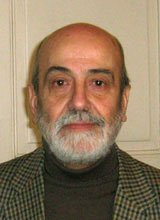A talented Revival writer and cleric, St. Sophronius of Vratsa (with his secular name being Stoyko Vladislavov) was born in 1739 in the town of Kotel, the Eastern Balkan Range. There he was trained in the local monastic school. Sophronius is credited for creating the first autobiography in modern Bulgarian literature, Life and Sufferings of Sinful Sophronius. He provided the first handwritten copy of Slav-Bulgarian History by Paissi of Hilendar, a book that played a key role for the Bulgarian National Revival that occurred during the five-century long Ottoman rule. More about St. Sophronius of Vratsa from Nikola Hadjiev, Director of the National Ecclesiastical Museum of History and Archeology.

“Love, loyalty and self-sacrifice for the motherland and for the Bulgarian nation – this is what Sophronius’s life was all about. His mother died when he was three, and his father – when he turned 11. The local Kotel residents who noticed his talent and his interest in spiritual affairs, pressed him to marry at 18, and made him a parochial priest. He was good and caring, and ready to help when needed. The encounter of Sophronius with Paissi of Hilendar was remarkable. In 1765 Paissi knocked on the gate of pope Stoyko Vladislavov and showed him his history book. The priest of Kotel thanked him for the honor and started copying the book with utmost interest and care. Work on Slav-Bulgarian History acted to kindle great patriotism in Sophronius. He was deeply impressed by the Paissi book, and it did give a new direction and focus to his life. Sophronius became a fervent promoter of the Bulgarian national cause. He was teaching children, served in church, and even joined the first efforts for organized national-liberation struggles.”
Priest Stoyko completed two copies of Slav-Bulgarian History and keen to find out what had inspired Paissi for the great work, went to visit Mount Athos on two occasions. In 1794 already with the ecclesiastical name Sophronius, he was made bishop of Vratsa, Northwestern Bulgaria, where he was very active in public affairs. Because of the hostilities in Bulgaria, Sophronius had to move to Bucharest where he engaged in diplomatic activity aimed at the liberation of Bulgaria from Turkish rule. During the 1806-1812 Russo-Turkish War he joined the efforts for the recruitment of Bulgarian troops including young volunteers fighting for Russia. Sophronius of Vratsa drew up the so-called Application with 15 items addressed to the commander-in-chief of the Russian Army. In the document he outlined a program for the solution of the Bulgarian national question. During his stay in Bucharest Sophronius wrote the best of his works. One of them was the compilation Nedelnik with instructions and lectures for all Sundays and feasts throughout the year. Compiled from Church-Slavonic and Greek sources the collection was the only printed book from among Sophronius writings. Nedelnik was the first modern Bulgarian printed book. The compilation became vastly popular and was nicknamed Sophronie, after the name of its author. Its modern touch survives to this day, argues Nikola Hadjiev.
“He wrote many other works but Nedelnik was the most important one. Sophronius lived a life full of hardships. He was a sufferer, so no wonder that he entitled his autobiography Life and Sufferings of Sinful Sophronius. This work is valuable in many ways and one of them is that it draws up a picture of how Bulgarians lived in 18 c. St. Sophronius was proficient in Greek and translated many Greek books. He was also very skilled in drawing portraits and landscapes. In the aftermath of the 1806-1812 Russo-Turkish War Sophronius stayed in Bucharest where he died. A year before his death – in 1812 – an unknown artist painted an oil portrait of the great writer. This portrait is kept at the National Ecclesiastical Museum of History and Archeology. The canvas was delivered to the museum in 1929. The same portrait is printed in the readers of the Bulgarian first-graders”, concludes Nikola Hadjiev, Director of the National Ecclesiastical Museum of History and Archeology in Sofia.
Translated by Daniela Konstantinova
Vasil Levski is a Bulgarian revolutionary and national hero who fought for the Liberation of Bulgaria from the Ottoman Empire. He is an ideologist, founder and organizer of the Internal Revolutionary Organization, for which grateful..
Bulgarian Patriarch Daniil will celebrate the first liturgy in London for the consecration of the new church of the Bulgarian Orthodox community in the British capital - the church of Saint Ivan Rilski. T he church is part of the Bulgarian Embassy..
Every year on February 10, the feast of St. Haralambos , Bishop of Magnesia, is celebrated with special solemnity in a small Bulgarian town in the northernmost part of the country's Black Sea coast . For Shabla and its residents, this is the..
Vasil Levski is a Bulgarian revolutionary and national hero who fought for the Liberation of Bulgaria from the Ottoman Empire. He is an..

+359 2 9336 661
